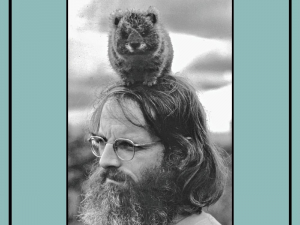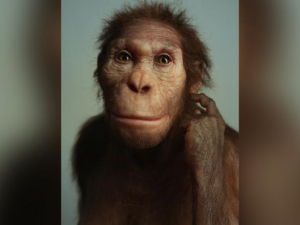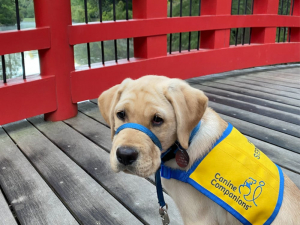I Remember Africa is a memoir based on Dr. Thomas Struhsaker's wildlife research and conservation efforts in Africa spanning 56 years (1962-2018). It describes some of the challenges scientists and conservationists faced in the early days of field research on primates and other wildlife in Africa. The stories range from the savannas of East Africa to the rain forests of Central and West Africa. The Kibale Forest in Uganda was the author's home for 18 years (1970-1988) during the reign of vicious dictatorships,… read more about New Book: I Remember Africa: A Field Biologist's Half-Century Perspective »
Rock climbing is an extreme sport that requires precision, strength, and skill. Elaine Kozmav wanted to know just how much energy rock climbers spend while climbing and whether changes in body proportions or speed made any difference. Her findings might surprise you! To read the full paper, Kozma EE, Pontzer H., Determinants of climbing energetic costs in humans. J Exp Biol. 2021 visit https://pubmed.ncbi.nlm.nih.gov/34160... To learn more about the Pontzer lab, visit: https://… read more about To Save Energy in Extreme Situations, Go Faster »
DURHAM, N.C. – It’s a cold and rainy Sunday afternoon: would you rather be running after tasteless wild berries, or curled up on your couch with fuzzy socks and a good book? You might not have had that choice if our ancestors had not taken a big gamble with their food. A new study published in Science on December 24 shows that early human foragers and farmers adopted an inefficient high-risk, high-reward strategy to find food. They spent more energy in pursuit of food than their great ape cousins, but brought home much… read more about Risky Food-Finding Strategy Could be the Key to Human Success »
DURHAM, N.C. – Cooperation and aggression. Meerkats are showing us that one may not be possible without the other. In a study appearing this week in the journal Nature Communications, a team of researchers led by Christine Drea, professor of Evolutionary Anthropology at Duke University, shows that testosterone-fueled aggression may be a crucial part in the evolution of cooperation in meerkat societies. Meerkat societies have a clear boss: the matriarch. Along with her lucky mate, she rules over a group of subordinate… read more about Cooperation Has a Dark Side, and Meerkats Are Helping Us See It »
Duke University had a very exciting year in science in 2021. Here is a roundup of some of the science stories covered this year. Robo Dragonfly: DraBot uses air pressure, microarchitectures and self-healing hydrogels to watch for changes in pH, temperature and oil Identifying New Drug Targets for COVID-19: The coronavirus’s tangled strands of RNA could offer new ways to treat people who get infected Ghost Forests: Rising seas and inland-surging seawater are leaving behind the… read more about The Year in Science at Duke »
DURHAM, N.C. – Sixty-three percent. That’s the proportion of mammal species that vanished from Africa and the Arabian Peninsula around 30 million years ago, after Earth’s climate shifted from swampy to icy. But we are only finding out about it now. Compiling decades of work, a new study published this week in the journal Communications Biology reports on a previously undocumented extinction event that followed the transition between the geological periods called the Eocene and Oligocene. That time period was marked by… read more about The Climate-Driven Mass Extinction No One Had Seen »
Jonathan Pertile describes the joys of volunteering in the puppy kindergarten read more about Tales from a puppy kindergarten dorm volunteer »
DURHAM, N.C. -- We put “save the chimps” on t-shirts and posters. But you’ll never see anyone walking around in a shirt that says “save the chimpanzee lice.” People seem to be more aware of the plight of endangered gorillas than of the gorillas’ gut worms, or are understandably more enamored with mouse lemurs than their mites. Our closest animal relatives face a precarious future: Half of the world’s roughly 500 primate species are at risk of extinction due to human activities such as hunting, trapping and deforestation.… read more about If Endangered Primates Disappear, So Will Their Parasites. That’s Actually a Problem »
The fall 2021 cohort at the Duke Canine Cognition Center’s Puppy Kindergarten sat -- and stood, and laid down -- for their class portrait Wednesday. Fearless, Dunn, Ethel, Gilda and Gloria are part of a long-term study at the Duke Canine Cognition Center funded by the National Institutes of Health on the cognitive development of potential service dogs. The puppies come from Canine Companions in California, which raises puppies to be trained as service dogs for people who need help with mobility, hearing and other… read more about They're Puppies Now, But They're the Service Dogs of the Future »






























